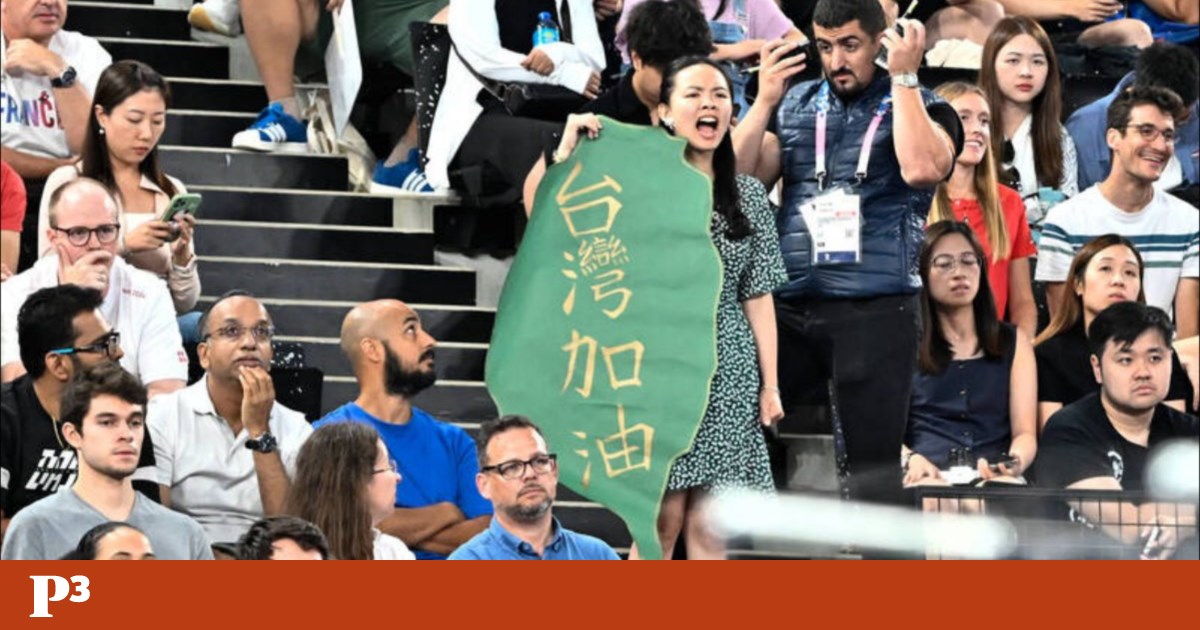The rules of the Olympic Games are clear: posters with political or religious messages are not allowed during events. And since the People’s Republic of China, a member of the United Nations, claims Taiwan as part of the country, displaying a card with the island’s name is, in the IOC’s view, grounds for reprimand.
Since the start of the competition, which began on July 26 in Paris, several incidents involving Taiwanese citizens, who write, have been reported. location DiplomatThey say the Chinese have reported them to stadium security because they don’t like seeing them with the posters on the island.
The latest disrespect occurred during the men’s badminton event on Sunday, August 4, which pitted athletes from Taiwan and China against each other. Taiwanese Li Yang and Wang Chilin defeated Chinese Liang Weiqing and Wang Chang 2-1.
Angelina Yang, a young Taiwanese woman studying in France, displayed a poster at the tournament with Chinese characters written on it. Jiayue Taiwan (Taiwan Power, in free translation.) The cardboard was green, the color used by the Democratic Progressive Party on the island territory.
In statements to guardianThe student said she was given permission by a security guard at the entrance to the stadium to enter with the letter. Once inside, she claimed a man she believed to be Chinese “forcefully” took the sticker from her hands seconds before she was surrounded by two security guards.
“I was very surprised. Very sad and angry at the same time. I did nothing wrong. Why did they treat me this way?” she asks, according to the British daily.
In a statement carried by CNNTaiwan’s Foreign Ministry condemned the “violent act” that disrespected freedom of expression and “violated the civilized competition environment.” In response, the International Olympic Committee stressed that the rules regarding poster messages were “clear.”
Ann Wang/Reuters
In fact, the IOC’s rules regarding Taiwan have remained the same for decades, the result of pressure from China, which wants to annex the island and is trying to limit the territory’s presence in sporting competitions. Taiwanese athletes at the Olympics have therefore been required to compete under the name Chinese Taipei, rather than Taiwan or the Republic of China, since 1984, the year they first competed.
Currently, in addition to posters bearing the word Taiwan is not allowed, the use of the island’s national anthem and flag is also banned from Olympic competitions due to pressure from the Chinese government. For many politicians in North America, guardianThe IOC’s decision is “irrational,” noting that Puerto Rico (which is controlled by the US government, but not part of the country) or Bermuda (a British island territory) compete under their own names.
The power of “Bubble Tea Land”
Despite the strict restrictions, Taiwanese fans have found unusual ways to support the nation at various events. According to the British newspaper, many people draw food to form the word Taiwan. Others refer to the country as Bubble tea land (Bubble Tea Land) on the labels.
In the badminton tournament on Sunday, Taiwan won its first gold medal at the Olympics. Thousands of people on the island watched the moment on giant screens installed in the streets and watched the medal presentation. As always, there was no flag or national anthem.
Ann Wang/Reuters

“Food fanatic. Organizer. Hipster-friendly tv specialist. Avid reader. Devoted web ninja.”


